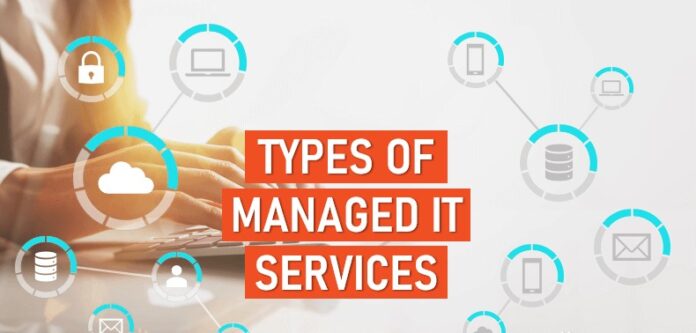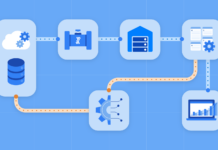When you’re doing it in-house, managing your company’s IT infrastructure takes a lot of time, effort, and money. It’s why many companies opt for managed IT services instead – they’re cheaper, more reliable, and allow your business to scale more efficiently.
So, how does it all work? Where can you find such services? What are the benefits of outsourcing your IT? Are there any potential drawbacks to it?
Here we’ll answer all of these questions and more, so keep on reading to learn everything there is to know about MSPs and the ways they can help you grow your company.
What are Managed IT services all about?

As the name suggests, working with a Managed IT service provider means you’re outsourcing everything that has to do with your IT infrastructure. The MSP will ensure your systems are kept stable and functioning at all times.
This kind of support is crucial for small companies who can’t afford an in-house IT team, especially if they deal with sensitive data on the daily basis.
Now, of course, not all MSPs offer an „all-inclusive“ plan – their pricing depends on the types of services you’ll require for your business operations. Make sure you review your needs and requirements carefully before deciding to hire an MSP.
Different types of Managed IT services

As we’ve already mentioned before, not all MSPs offer the same types of services. Because of that, we can say there are different Managed IT services available. Some of them include:
- Security – managed security services are probably the most popular among all managed services to date. Keeping your data secure is of the utmost importance, especially if you store sensitive documents that can be used. If you don’t have a cyber security specialist on your team, your best option is to outsource an expert instead.
- Networking – network interruptions can slow your business down in more ways than one. MSPs specializing in these services can help you keep your network stable, ensuring everything is working seamlessly. You can also hire them to help you with the initial setup as it can be quite overwhelming for someone who’s not knowledgeable about the relevant hardware and software.
- Communication – most companies use VoIP technology for collaboration nowadays. The phenomenon is only getting more prevalent as the popularity of remote working rises. MSPs that specialize in communication software and systems can provide you with solutions that make your collaboration projects much easier.
- Support – your software and hardware is bound to malfunction at some point, especially after prolonged use. If you don’t have the means to deal with those issues adequately and promptly, your business won’t be able to grow to its full potential. That’s why hiring support MSPs is always a good idea – even if your infrastructure is quite simple.
- Disaster recovery – finally, if your data gets lost by accident, you need to have a way to retrieve it. Outsourcing your disaster recovery & backup experts is probably the cheapest (and the most effective) way to achieve this.
Are there any risks to using these services?

Even though managed IT services come with a plethora of different benefits to your business, they also have their risks. You’re allowing a third-party to access and manage the data stored on your servers. Worst case scenario – the sensitive information about your business and your clients ends up in the wrong hands. It’s a risk not all companies are ready to take.
Still, however, as long as you take certain precautions, it’s a risk that can be avoided completely. All you need is some careful research beforehand. Choose a reliable company with a long record of success stories, such as CompuVision, for example.
The advantages
As we’ve briefly mentioned before, managed IT services can be incredibly beneficial to your business, especially if it’s a small company or a startup.
Now, even if your infrastructure is still quite small and you feel like you can manage it by yourself, it doesn’t mean it will stay like that for long. In fact, as your business starts growing in size, so will your technological needs.
Hiring an MSP provides you with expert services that are both cheaper and more effective than hiring someone in-house to do the job for you. Besides cutting your costs, you’ll also gain more time to grow your business and focus on improving other important matters regarding it.
You can find many high-quality MSPs online. We advise you to hire someone from your local area, if possible. In this way, the IT professionals can help you fix your hardware issues and help you with required installations onsite.
How to choose an MSP?

Choosing a reliable managed IT service provider is of the utmost importance for the success of your business in the future. Make sure the company you choose is well-reviewed, easily approachable, and can prove their experience in the industry. You should also take note of their communication skills – is their customer support always available? Do they answer your questions promptly and with care?
Remember: the MSP you choose will be your long-time partner. You don’t want someone who’s unable to fulfill your needs and requirements.
As we’ve already mentioned before, choosing a trustworthy MSP takes some effort on your part. No matter if you’re doing it online or via your business network, research is your best friend. So, don’t hesitate to ask as many questions as you need before you start working with a Managed IT Service Provider – their answers will tell you everything you need to know about their expertise!
The conclusion
All things considered, managed IT service providers can take care of your entire IT infrastructure for you. As long as you choose a quality service, you won’t have to worry about your IT systems ever again. Everything is covered: cyber security, data protection, server maintenance, network management, software updates, hardware upgrades, and even Audio-Video integration!
The only potential risk you’ll be dealing with is that an „outsider“ has access to your systems and data. If that seems like something you can handle, then there is nothing stopping you from enjoying the many different benefits an MSP can provide!









